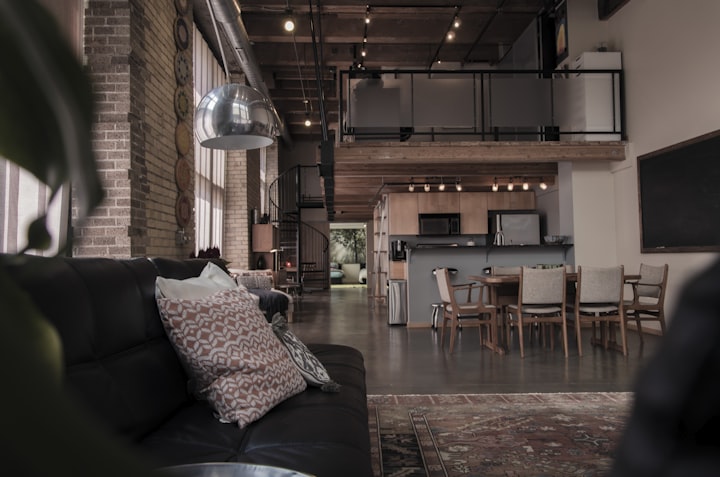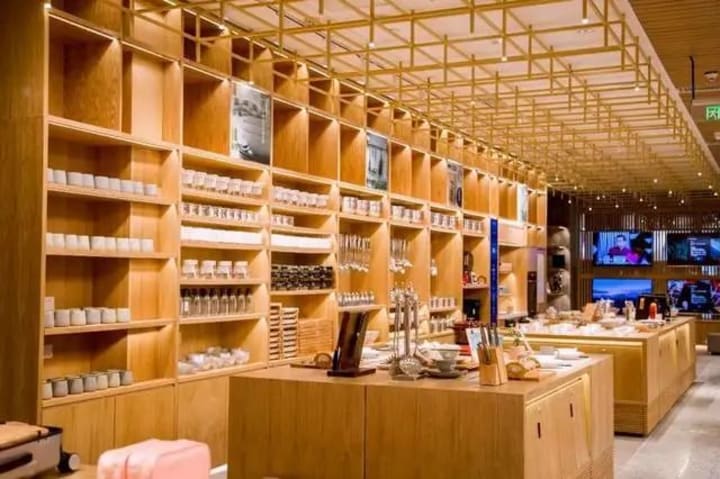
On July 10, Joinery Project, the parent company of Japanese retail giant Mujib, announced that its U.S. subsidiary has filed for bankruptcy with $64 million in debt due to the impact of the New Crown Pneumonia outbreak, which forced all U.S. stores to suspend operations since March 17 and continued losses in its U.S. operations.
Statement related to Goodwill Project
Fuji's U.S. company has been at a continuous loss in recent years
According to the announcement sent out by Ryan Project on its official website, Fuji's U.S. subsidiary has taken steps to improve its business by expanding its customer base and negotiating rents during the epidemic, but sales have dropped significantly due to the expanding epidemic and store closures.
The report noted that FUJI currently has 19 stores in the U.S., with total sales accounting for 2.5% of Ryan's planned revenue, but the U.S. market has been in the red for the past three fiscal years. According to its bankruptcy statement, the U.S. subsidiary lost about $10 million in the last year.
From the company's published financial data for the past three years, Fuji's U.S. operations have not been in good shape, with profits falling year after year despite annual sales growth, such as a final loss of 1.8 billion yen in the fiscal year ending February 2020 and a loss of 940 million yen in the previous fiscal year.
Fuji's U.S. subsidiary's financials for the past three years
The company's financial report for the fiscal year ending February 2020 shows that overseas revenue accounts for 40% of the total, and the East Asian market, mainly China, accounts for 30% of the total, amounting to 124.7 billion yen, the largest market outside Japan.
According to its financial report, in recent years, FUJI has continued to struggle in the European and American markets, especially since the opening of new large stores in the U.S. market in 2018. FUJI has since begun to implement an overhaul of its U.S. operations but has failed to reverse its losses.

Pryor plans to release its March to May 2020 financial results on July 10
Fuji's U.S. subsidiary is reportedly one of more than 110 companies that have filed for bankruptcy affected by the New Crown epidemic, which has swept through retailers around the world, and the bankruptcy filing is a way for the company to try to cope.
The report also notes that FUJI currently has 19 stores in the U.S., with total sales accounting for 2.5 percent of Ryan's planned revenue, but that the U.S. market has been in the red for the past three fiscal years. According to its bankruptcy statement, the U.S. subsidiary lost about $10 million in the last year.
Despite the rapid expansion of the FUJI brand in international markets over the past 10 years, the company's operations have not been smooth. The report said that the large range of cheap textiles has also weakened its sales performance because Fuji's simple design style and products can be easily imitated.
The epidemic hit the U.S. with a wave of bankruptcies, and just on July 8, Brooks Brothers, a 200-year-old American apparel brand, filed for bankruptcy. Statistics from industry body Epic show that so far this year, the number of new business bankruptcies in the U.S. has reached 3,604, an increase of 26% compared to the same period last year. At the same time, bankruptcy filings have also accelerated, with 609 new additions in June this year, an increase of 43% year-over-year. Industry experts expect that with the rising number of new coronary pneumonia confirmations, the amount of U.S. business bankruptcies will likely rise further in the third quarter.
Two hundred-year-old U.S. clothing brand files for bankruptcy protection
Brooks Brothers, one of America's oldest and most prestigious apparel brands, filed for bankruptcy protection in court on Wednesday (8).
A spokesperson for Brooks Brothers said, "Over the past year, the Brooks Brothers board of directors, leadership team, and financial and legal advisors have been evaluating various strategic options to position the company for future success, including selling off portions of the business. And during this time, the New Crown epidemic has been extremely disruptive and costly to our business."
The retailer, founded in 1818, boasts that it has clothed 40 U.S. presidents and countless investment bankers.
Originally offering casual office wear, Booker Brothers became known for its stiletto oxfords and trendy sports jackets.
The company is known to have generated more than $991 million in sales last year, with online sales accounting for about 20 percent of that total.
The company has wholesale agreements with retailers such as Macy's and Strongroom, and contracts to produce uniforms for Net Jets, United Airlines, and other companies.
But rent was already a burden for the company, and the arrival of the new coronavirus pandemic disrupted its offline sales, exacerbating the bad situation.
After Booker Brothers declared bankruptcy, some investors valued the company across the board, including the more than 500 stores and factories it owns worldwide, at a total of about $350 million.
The Booker Brothers brand has reportedly attracted strong interest from potential acquirers, including brand licensor Authentic Brands, but many potential acquirers would prefer to buy the brand after Booker Brothers have scaled back its store count.
Authentic Brands' brands
In early April, Booker Brothers began evaluating which of its approximately 250 North American stores should be closed. The company has decided to close about 51 stores, blaming the decision on the New Crown epidemic. Most of the closures have already begun, and Booker Brothers have moved inventory from targeted stores to distribution centers.
"We are in the process of identifying the right owner to lead our iconic Booker Brothers brand into the future." A spokesperson for the company said, "Any potential buyer must align with our core values, culture, and ambitions. More details about the sale process will be announced in the coming days."
In addition, to support post-bankruptcy business operations, Booker Brothers secured $75 million in debtor-in-possession financing from brand management firm WHO Global, which has backing from Oaktree Capital and Black Rock. Before that, Booker Brothers received a $20 million loan from Gordon Brothers in May.
The impact of the epidemic on the retail industry has been incalculable, with several industry giants "falling through the cracks. Luxury department store Newman Marcus, apparel retail chain J.Crew, and J.C. Penney, one of the largest department store chains in the U.S., have all filed for bankruptcy protection in the past few months.
As unemployment in the U.S. has risen sharply and incomes have plummeted due to the new crown virus pandemic, many Americans do not have enough income to buy new clothes. In addition, restrictions have forced the closure of a large number of retail stores, exacerbating the trend toward "online shopping," which in turn has led to a crisis in the apparel industry, which is primarily based on offline sales.
The U.S. has recently been caught in a second wave, which has put the newly recovering apparel industry back on thin ice and in the doldrums.
Epidemic? Shuffle? The fast fashion industry is under heavy pressure
In the past six months, Unique, Zara, H&M, GAP, Chapel, and other fast fashion brands have announced the closure of some of their stores, from capital fever to store closures and stocks on the verge of being capped, the story of fast fashion is becoming increasingly difficult to tell.
In the first quarter of 2020, Chapel achieved revenue of 1.002 billion yuan, down 57.75% year-on-year, and before that, Chapel experienced two consecutive years of declining performance. 2019 large-scale store closures and liquidations, closing about 4,400 stores for the year, the number of brands, operational difficulties, the main business profitability is difficult, overseas acquisition failure, default, debt and other financial pressures put Chapel in Exit warning.
The US fast fashion giant GAP has temporarily closed most of its stores worldwide due to the epidemic, and although there is still 20% online revenue, most consumers do not have the desire to buy during the epidemic period. GAP suffered a fatal blow with widespread store closures, online transformation blocked, and stagnant revenue.
H&M, Zara's situation is also not optimistic. Affected by the epidemic, H&M sales fell 46% in March this year, closing 3,778 stores. the 2019 annual report released by Zara also showed that 50% of the group's global stores were temporarily closed.
However, the epidemic was just the trigger for fast fashion to press the pause button.
In the same competitive circuit, the Chinese market used to be a must for every fast fashion brand. But with more and more entrants, the space left in the Chinese fast fashion market is getting smaller and smaller, and the industry saturation period is gradually approaching, the scenery of fast fashion brands in the Chinese market has long ceased.
About the Creator
Nagy Mo J
I learned early on that the best way to stay out of trouble is to not complain or ask for anything.






Comments
There are no comments for this story
Be the first to respond and start the conversation.